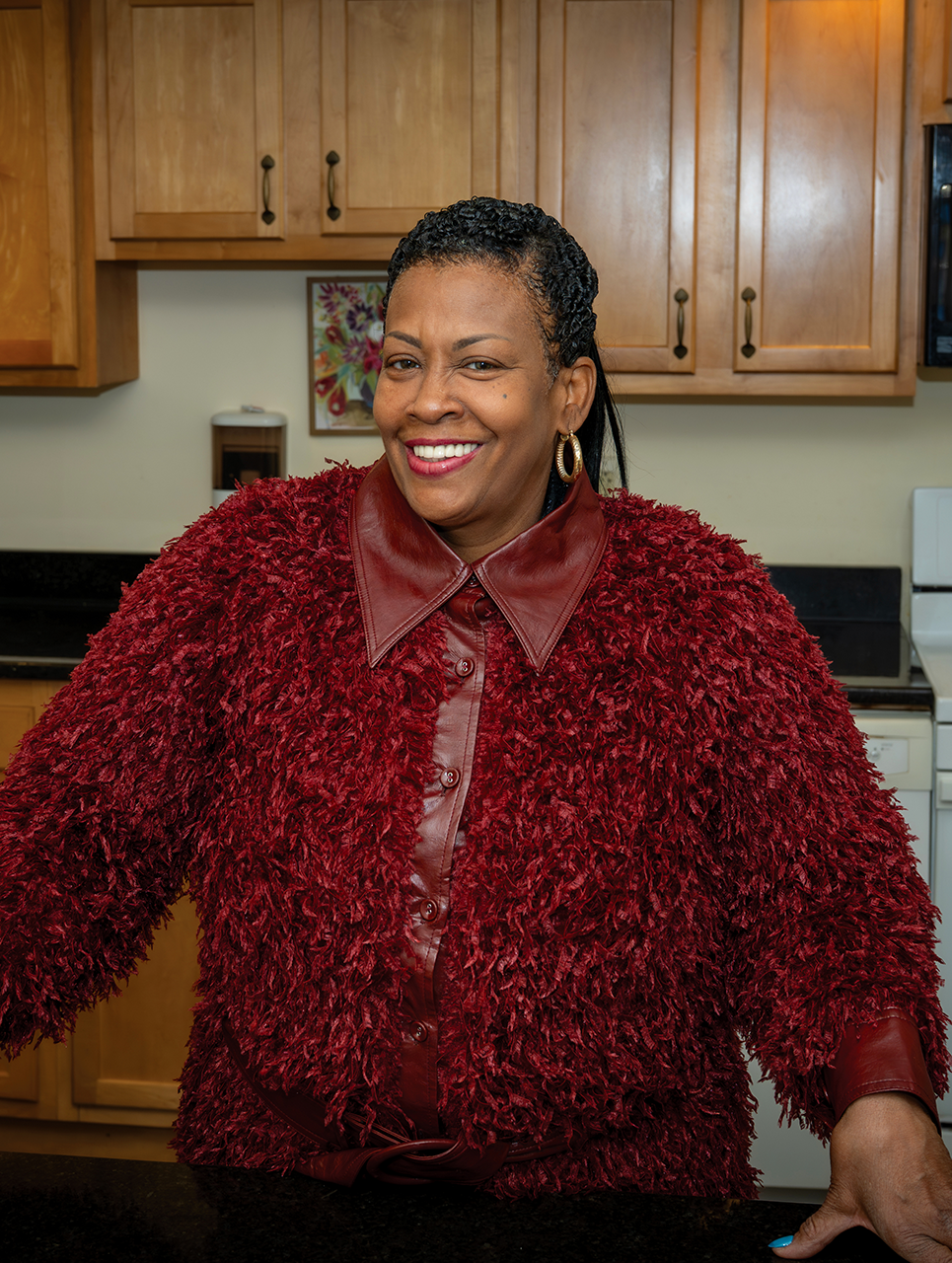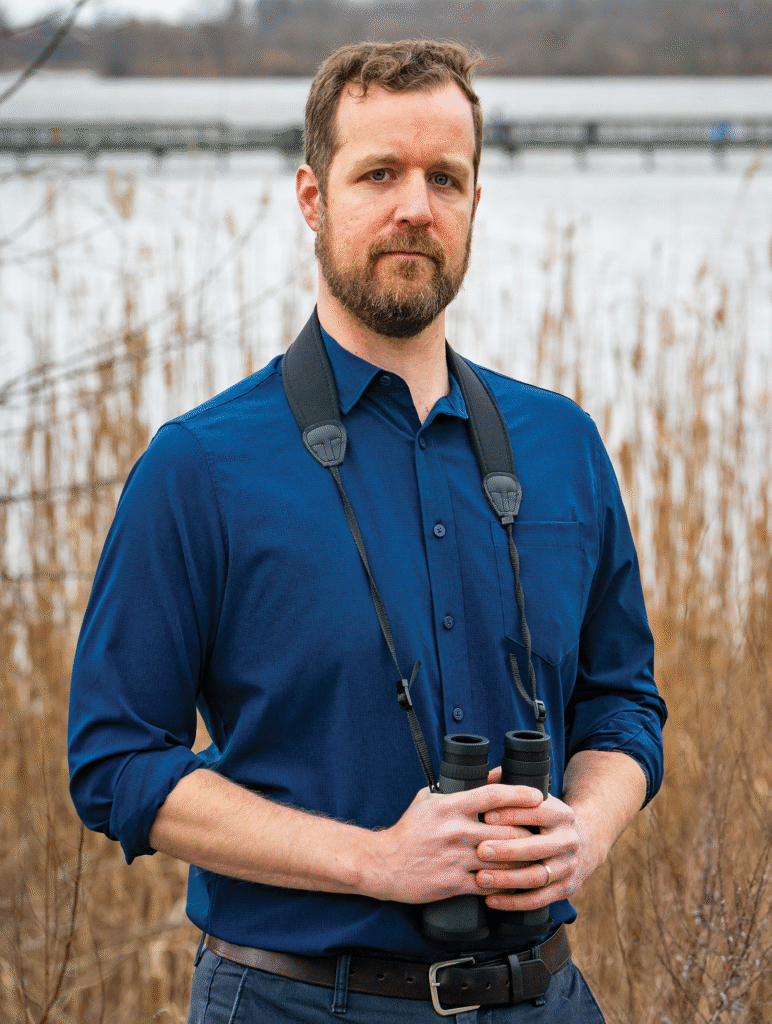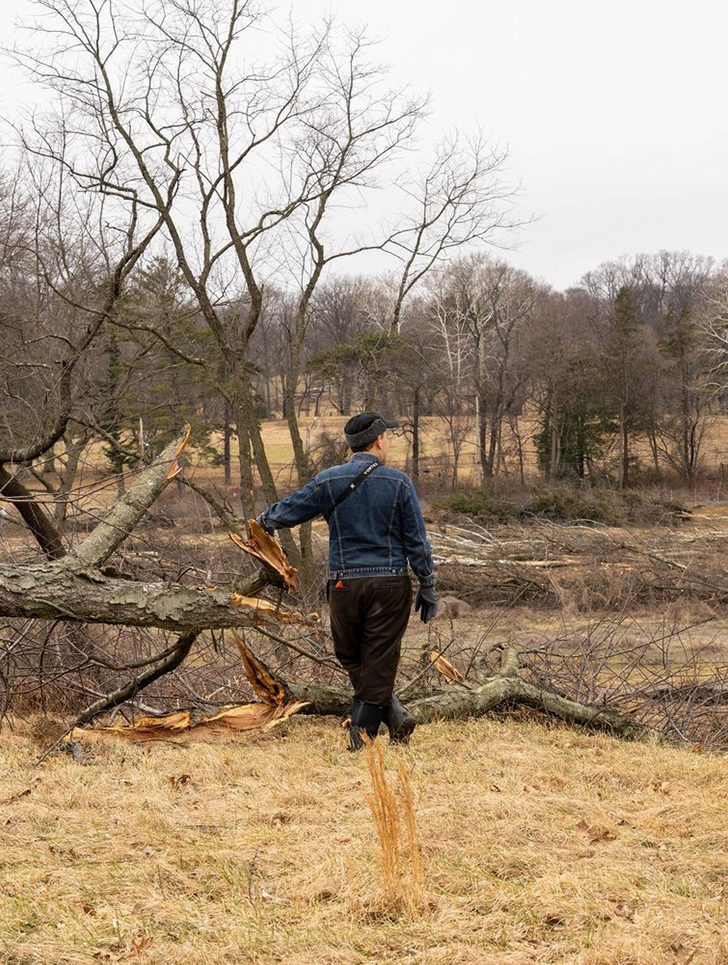On April 16, halfway through the City of Philadelphia’s annual budget hearings, Philadelphia Parks & Recreation answered City Councilmembers’ questions centering safety and the future of the department’s more than 500 facilities.
The department is requesting nearly $7.4 million less than last year largely because, as commissioner Susan Slawson testified, the FY2025 budget included one-time payments — for bonuses, new equipment and site maintenance.
While some questions remained unanswered — in large part because the two-and-a-half-hour allotment was shared by Parks & Rec and the Free Library of Philadelphia — the hearing highlighted issues top of mind for members of City government.
Parks & Rec staff still using cancer-causing herbicides
In the past year alone, Philadelphia juries have awarded plaintiffs over $3 billion in lawsuits related to the weed killer Roundup. It contains glyphosate, an endocrine disruptor that has been found to nearly double high-frequency users’ risk of developing certain cancers. Councilmember Jim Harrity asked about the department’s use of the chemical.
He referenced City Council’s Healthy Outdoor Public Spaces (HOPS) bill, which banned use of synthetic herbicides on City grounds beginning in 2023, unless approved by the Department of Public Health.
The legislation also requires annual public information releases on what is sprayed, and where. As of the time of reporting, the information was not available on the City’s open-access database at opendataphilly.org.
Susan Buck, deputy commissioner of operations at Parks & Rec, said that the department is in compliance with the law and trains its staff on how to use herbicides safely.
“Our staff were trained too — it didn’t stop them from getting cancer,” said Harrity, a member of the Laborers’ International Union of North America Local Union #57. “We’re talking about a place where kids play.”
Buck pushed back.
Honestly, it’s very labor-intensive to remove all the weeds. We’re following the guidelines outlined in the HOPS bill the best that we can.”
— Susan Buck, Philadelphia Parks & Recreation Deputy Commissioner
“What we were spraying is similar to the products like Roundup that you would use at your home to spray the weeds,” she said. “Honestly, it’s very labor-intensive to remove all the weeds. We’re following the guidelines outlined in the HOPS bill the best that we can.”
City Council president Kenyatta Johnson put further pressure on Buck and Slawson, who agreed to additional meetings outside of the department’s budget hearing.
FDR Park renovation fully funded, some new spaces to open this spring
Slawson testified that two parts of the over $250 million FDR Park Plan — Gateway Plaza and the Welcome Center — are set to open this spring. They include new wayfinding information, walking paths, seating and a rain garden, as well as misters for the hotter months.
What wasn’t mentioned? The millions of dollars poured into raising portions of the park to avoid rising floodwaters and turning other portions into wetlands, despite neighbors’ protests and experts’ suspicion that the changes will be no match for the climate change-fueled deluges to come.
Multipurpose playing fields also got a nod; according to Slawson, they are fully funded, but construction “is not moving yet.”
The $96 million project, a core part of Mayor Cherelle Parker’s plans for the influx of visitors set to come to the city next year, has been the subject of additional scrutiny. Proposals included synthetic turf fields that risk exposing users to cancer-causing chemicals. The fields’ overhaul has also raised concerns in immigrant communities whose members frequent the space; they fear they may be shut out once the renovations are completed.
Safety and violence prevention top of mind for Council
While gun violence is decreasing citywide, Councilmembers raised concerns about violence at recreation centers, especially ahead of the summer.
Council president Johnson floated the idea of a public-private partnership to increase security staff around the facilities and promised that the City would “spare no expense to keep our children safe.”
Slawson said, however, that the first priority should be filling regular staff positions and taking care of Parks & Rec’s own.
“It’s not just traumatic for the parents, the children, the relatives. It is traumatic for our staff members that have to run out and try to save the lives of the young people that have been attacked,” she said. “This affects our community all around.”
Multiple Councilmembers recommended Level Up Philly as an alternative to police or private security presence. The West Philadelphia organization, founded by Pastor Aaron Campbell, works to empower at-risk youth through therapeutic, social, educational, tech and career programming.
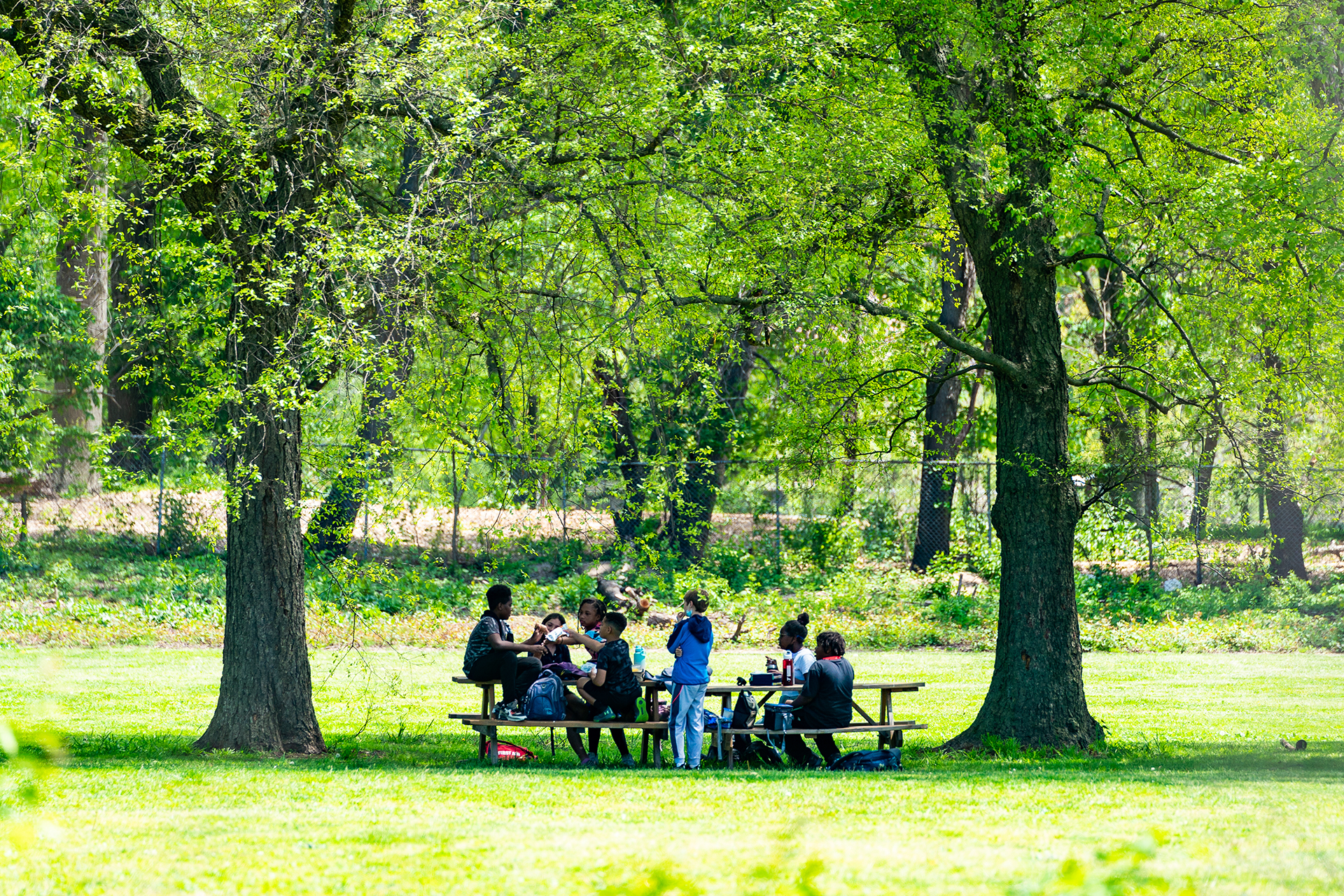
Forestry Division doubles number of trees pruned, still faces major backlog
In last year’s budget, Parks & Rec saw a $500,000 boost to its tree maintenance fund to address an often-cited complaint to district Councilmembers — damaged, dying and dead street trees.
Erica Smith Fichman, the city forester at Parks & Rec, testified during the April budget hearing that the extra money allowed her team to double the number of trees pruned and will allow removal of the most hazardous trees on the department’s list this year.
But, with 3,000 trees still on the waiting list, Smith Fichman said it would take several years, additional staff and about $2.6 million to catch up with demand.
Logistics remain a core issue — with a potential solution
As Rebuild projects continue, Councilmembers asked Slawson what her department was doing to ensure that its buildings wouldn’t fall into such disrepair again.
Slawson said she has been touring facilities, with plans for an in-depth inspection of each one and creation of a new asset management system to keep staff accountable.
“There’s been a neglect in the system for decades,” she said. “And just like your home, if you have a little leak in your roof, and you allow it to go for a year or two, and you continue to patch and it’s a 20-year-old roof, you’re going to eventually have a roof that’s going to cave in.”
How much this plan would cost — and how long it would take — remains unclear.
Councilmembers question accessibility
Councilmembers Kendra Brooks and Cindy Bass pressed Slawson on expanding accessibility in playground and aquatics programming.
In 2016, Bass successfully spearheaded a bill requiring that any city park undergoing renovations include play areas for children with special needs, including Down syndrome, autism, cerebral palsy and hearing, vision and mobility impairments. Because the hearing was nearing its scheduled end, she directed Slawson to explain in writing how the department is working to adhere to the law.
Brooks focused on Carousel House, the city’s only recreation center designed to serve those with disabilities. It has been closed since 2020, after years of deferred maintenance caused the building’s roof to begin caving in.
While the City has released its plan for the new space, Slawson testified that the project likely will not be completed until 2028. In the meantime, much of Carousel House’s programming has moved to Gustine Recreation Center in Northwest Philadelphia.
But the Councilmember, articulating a position held by many advocates in the Philadelphia area, said that accessibility — both in terms of facilities and programming — should be a priority citywide, not just at a few locations.
“People with special needs live in every community,” Brooks said. “I think if we’re not going to use the Carousel House for much longer, we need a long-term plan to make sure that those of varying ability have the ability to enjoy our Parks & Rec system.”


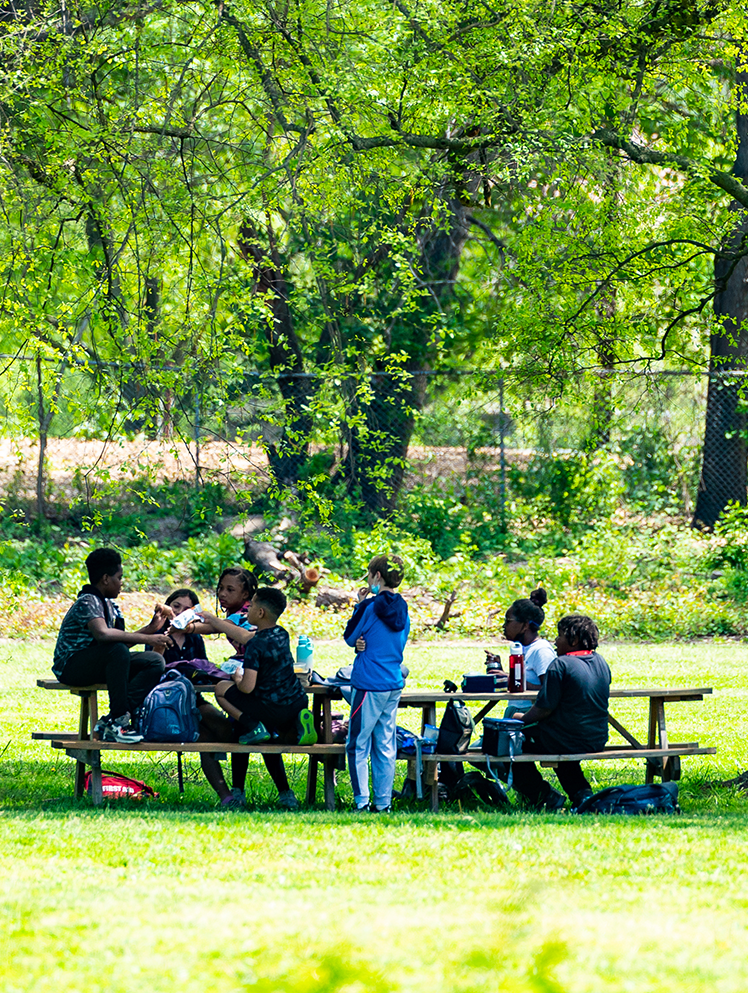
 This special section is a part of Every Voice, Every Vote, a collaborative project managed by The Lenfest Institute for Journalism. The William Penn Foundation provides lead support for Every Voice, Every Vote in 2024 and 2025 with additional funding from The Lenfest Institute for Journalism, Comcast NBC Universal, The John S. and James L. Knight Foundation, Henry L. Kimelman Family Foundation, Judy and Peter Leone, Arctos Foundation, Wyncote Foundation, 25th Century Foundation, Dolfinger-McMahon Foundation, and Philadelphia Health Partnership. To learn more about the project and view a full list of supporters, visit
This special section is a part of Every Voice, Every Vote, a collaborative project managed by The Lenfest Institute for Journalism. The William Penn Foundation provides lead support for Every Voice, Every Vote in 2024 and 2025 with additional funding from The Lenfest Institute for Journalism, Comcast NBC Universal, The John S. and James L. Knight Foundation, Henry L. Kimelman Family Foundation, Judy and Peter Leone, Arctos Foundation, Wyncote Foundation, 25th Century Foundation, Dolfinger-McMahon Foundation, and Philadelphia Health Partnership. To learn more about the project and view a full list of supporters, visit 